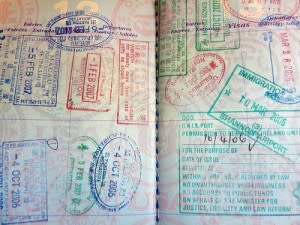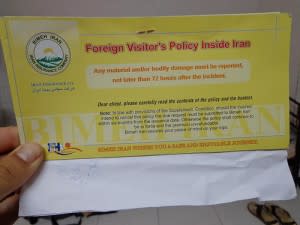Why You Need Travel Insurance
Travelling on business or leisure is a great way to expand your cultural awareness, build relationships, or take a relaxing break from being an office slave. Unfortunately, it doesn’t take much for months of planning and thousands of dollars to go to waste because of cancellations, delays, illness, or injury… unless you have travel insurance.
But travel insurance doesn’t just cover your actual “travel” time. It covers you during the entire duration of your holiday. Because even if you reach your destination without any problems, there’s no guarantee that your trip will be without incident as there’s always the chance you’ll get sick, injured, or even robbed on your trip.
If you’ve never experienced any travel hang-ups, consider yourself lucky, because any of the following incidents can ruin your trip:
Missing your flight due to lateness, illness, or injury.
Having your flight cancelled, delayed, or rerouted.
Having your luggage delayed, lost, or stolen.
Suffering an injury, illness, or worse during your trip.
Having your travel documents and/or money stolen.
But with travel insurance, if you experience any of the above situations, you’d receive either a lump sum payment or a straight reimbursement of your financial loss.
What Types of Travel Insurance Are There?
If every page of your passport looks like this, consider the annual policy.
There are several different types of insurance available to meet your travel habits. If you only travel once or twice a year on holiday, you could get a “per-trip” policy. But if you travel like an international fugitive avoiding capture or an investment banker (you’re thinking they’re the same thing right?), purchasing an “annual” policy would be perfect.
Here are the three most common types of travel insurance:
Per-Trip Policy: This is the most commonly purchased policy, as it’s only meant to cover you during the duration of your trip. Coverage begins from the moment you take your flight to your destination to the moment your flight arrives back home. Typically, these policies only cover trips 3 days or longer.
Annual Policy: This policy is perfect if you travel frequently on leisure or business, as it covers any number of trips you make within the 1-year policy period. But the maximum length of coverage you’ll receive for any one trip is 90 days.
Family Policy: This policy is intended to protect you and any family members you bring along on business trips or vacations without having to pay multiple premiums. You only pay one premium for a family policy on either a per-trip or annual basis. The only stipulation is that there has to be at least one adult travelling with any passenger 18/21 years or younger.
What Does Travel Insurance Cover?
With travel insurance, if your luggage gets delayed, you’ll be reimbursed for any “necessary” purchases you make… until you get your luggage back (hopefully within this decade!).
If you’ve ever had to miss a flight because of personal, professional, or medical reasons, you know how expensive the decision can be. Thankfully, travel insurance protects you against many of the situations that cost travelers hundreds or thousands of dollars.
When you purchase a travel insurance policy, you can expect the following coverage:
Personal Accident Coverage
This component of travel insurance provides benefits in the event that you become temporarily/permanently disabled or die as a result of an accident during your trip. The amount of compensation you or your beneficiaries would receive in the event of disability or accidental death is determined by the insurer’s compensation table, which can be found in the policy documents.
For example, if you lose an arm on a holiday accident, you’d receive about 50% (varies according to insurer compensation table) of the full sum you’re insured for. But if you die from the accident, the insurer will give your beneficiaries the full 100% of the sum you’re insured for. To learn more about Personal Accident Insurance, read this article.
Important Note: Travel insurance policies usually come with a “double indemnity” benefit, meaning your beneficiaries will receive twice the accidental death benefit you’re insured for in the following instances:
You perish in an accident while travelling on public transport as a fare-paying passenger (bus, train, ferry, etc.).
You perish in an accident while travelling in a private motor vehicle.
Medical Coverage
There are hundreds of ways you could end up in a hospital bed during your business trip or holiday – it only takes a moment of carelessness. For example, trying to twerk and drive while listening to Miley Cyrus or dismissing the “funny” taste of the oysters you ordered by covering it up with Tabasco are just as likely to send you on another “trip” to the hospital.
It doesn’t take much to rack up a medical bill that far exceeds the entire cost of your trip. That’s why travel insurance policies also include expense reimbursement (up to a limit) for the following:
Medical/Dental Costs: Insurers will generally reimburse you the cost of most medical and dental-related expenses such as ambulance transport, surgery (medical/dental), remedial care, follow-up treatment/examination, and nursing home charges.
Daily Hospital Cash: Insurers will provide a daily cash benefit for up to a certain number of days (daily/maximum cash and duration limits vary by insurer). This benefit is only available if you’re hospitalized for at least 24 hours.
Medical Evacuation: Insurers will advise and make arrangements for medical evacuation (helicopter/plane) to another hospital in the event that your destination doesn’t have the medical facilities/expertise to treat you.
Medical Visit: Insurers will allow one of your relatives of friends to visit you if you’re hospitalized for more than 5 days, you can’t be evacuated because of your medical condition, and no other family member accompanied you on the trip.
Travel-Related Coverage
Travel-related coverage is the most recognized aspect of travel insurance. That’s because it protects you against common, but expensive travel pains such as flight cancellations, lost luggage, and stolen travel documents. And if you’ve ever purchased tickets online or through a travel agent, you know that cancellation means either losing the entire cost of the ticket or having to pay a fee.
Here are some of the major travel-related situations that insurers cover:
Flight Cancellations: If you need to cancel your travel plans because of illness, injury, a death in the family, civil disturbance/rioting at your destination, hijacking, natural disasters, etc., insurers will provide financial benefits up to a maximum limit.
Flight Delays: If your flight is delayed for more than 12 hours due to civil disturbances, strikes, weather, or mechanical issues, insurers will provide you with either a lump sum or a cash payment for every 12 hours that your flight is delayed.
Missed Connecting Flights: If you miss your connecting flight because your plane arrived too late, insurers will provide you either cash or reimbursement for any food and accommodation you book.
Lost Luggage: If your baggage gets lost, damaged, or stolen, insurers will cover the cost of your valuables up to a maximum limit. However, there are exclusions to what can be claimed and excess may need to be paid. You’ll also need to file a police report for any stolen luggage within 24 hours to make a claim.
Delayed Luggage: If your baggage is delayed for more than 12 hours, insurers will provide you with either a cash benefit for every 12 hours your luggage is delayed or will reimburse you for the purchase of necessities such as clothing.
Lost/Stolen Travel Documents: If your travel documents and/or cash (traveler’s checks/cash) were lost or stolen during your travel period, insurers will cover the loss up to a maximum limit. If your items were stolen, you’ll need to file a police report within 24 hours to make a claim.
Liability Coverage: If you happen to cause third-party injuries or property damage during your travel period, insurers will cover the cost up to a maximum limit.
As with any other type of insurance, make sure you check out the policy documents to evaluate the benefit limits and exclusions.
Where Can You Get Travel Insurance?
No matter which travel insurance policy you get, it’s probably better than anything you’d buy at your destination.
Travel insurance coverage can be purchased from major insurance providers, your bank/credit card issuer, or from the airlines. While most insurance providers offer the same types of coverage, the benefits and premiums will vary by insurer.
That means you’ll really need to shop around and compare the benefits, coverage periods, and excess of each insurer to find the right policy. To make things easier, you can visit Smartinsurance.sg to find a policy to fit your budget and requirements. Also, there are some credit cards that offer complimentary travel insurance when you charge your air tickets or other holiday-related bookings to your credit card. For more information on which cards provide these benefits, head on down to SmartCredit.sg to have a look.
Know of any particularly good travel insurance policies? Share your experience with us on Facebook!
Image Credits:
Megoizzy, Digitalken, JoaoleitaoTRAVEL, edwin. 11
Get more Personal Finance tips and tricks on www.MoneySmart.sg
Click to Compare Singapore Home Loans, Car Insurance and Credit Cards on our other sites.
More From MoneySmart

 Yahoo Finance
Yahoo Finance 


